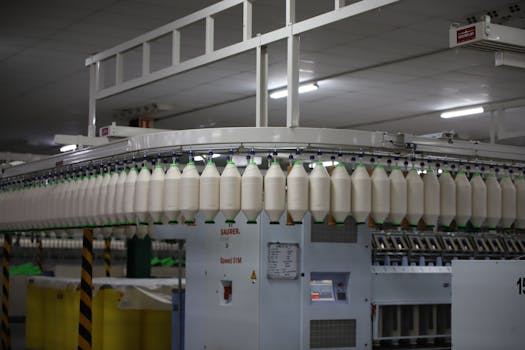From Cotton to Innovation: How African Fiber Companies are Transforming Textiles

From Cotton to Innovation: How African Fiber Companies are Transforming Textiles
From Cotton to Innovation: How African Fiber Companies are Transforming Textiles is a story of innovation and sustainability. The African continent is home to a thriving textile industry, with many companies working to transform the sector through innovative approaches to cotton production, processing, and manufacturing.
Introduction to African Fiber Companies
African fiber companies have long been a crucial part of the global textile industry. With a rich history of cotton production and manufacturing, many African countries have developed a strong expertise in the sector. However, in recent years, these companies have faced numerous challenges, including fluctuating cotton prices, increasing competition from synthetic fibers, and growing concerns about sustainability.
In response to these challenges, many African fiber companies have begun to innovate and diversify their operations. From investing in new technologies and machinery to developing sustainable production methods and exploring new markets, these companies are working to stay ahead of the curve and promote sustainability in the textile industry.
Innovations in Cotton Production
One area where African fiber companies are innovating is in cotton production. Traditionally, cotton production has been a labor-intensive and water-consuming process. However, with the introduction of new technologies and farming practices, many African companies are now able to produce cotton more efficiently and sustainably.
For example, some companies are using precision agriculture techniques, such as drip irrigation and crop monitoring, to reduce water consumption and improve crop yields. Others are investing in mechanized farming equipment, such as tractors and harvesters, to reduce labor costs and improve efficiency.
In addition to these innovations, some African fiber companies are also exploring new types of cotton production, such as organic and fair-trade cotton. These approaches not only promote sustainability but also provide a unique selling point for companies looking to differentiate themselves in a crowded market.
Sustainable Manufacturing Practices
Another area where African fiber companies are innovating is in manufacturing. With growing concerns about the environmental and social impacts of textile production, many companies are now prioritizing sustainability in their operations.
For example, some companies are investing in renewable energy sources, such as solar and wind power, to reduce their carbon footprint. Others are implementing sustainable manufacturing practices, such as using natural dyes and reducing waste, to minimize their environmental impact.
In addition to these innovations, some African fiber companies are also prioritizing social sustainability. For example, some companies are providing training and education programs for their employees, as well as promoting fair labor practices and safe working conditions.
Conclusion
In conclusion, African fiber companies are transforming the textile industry through innovative approaches to cotton production, processing, and manufacturing. From investing in new technologies and machinery to developing sustainable production methods and exploring new markets, these companies are working to promote sustainability and stay ahead of the curve.
As the textile industry continues to evolve, it is likely that African fiber companies will play an increasingly important role in shaping its future. With their expertise, innovation, and commitment to sustainability, these companies are well-positioned to drive growth and transformation in the sector.







